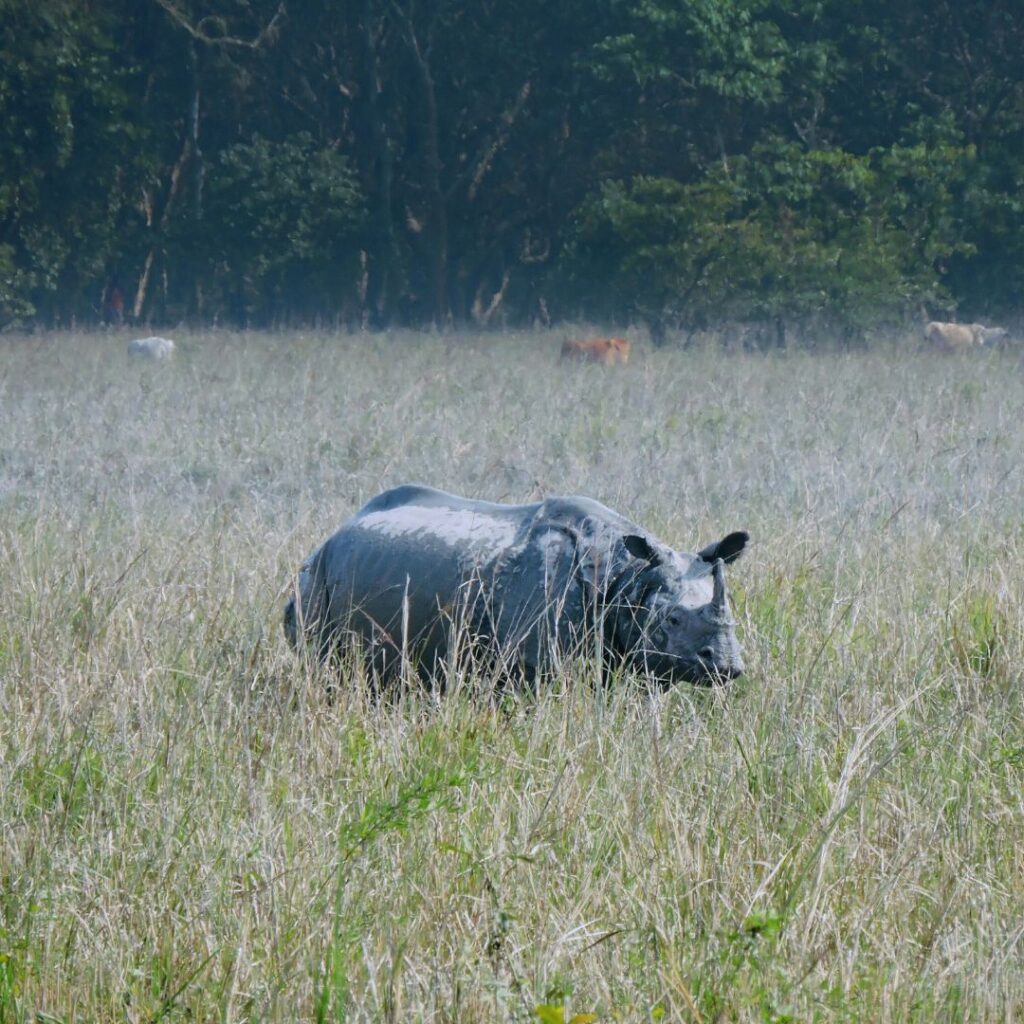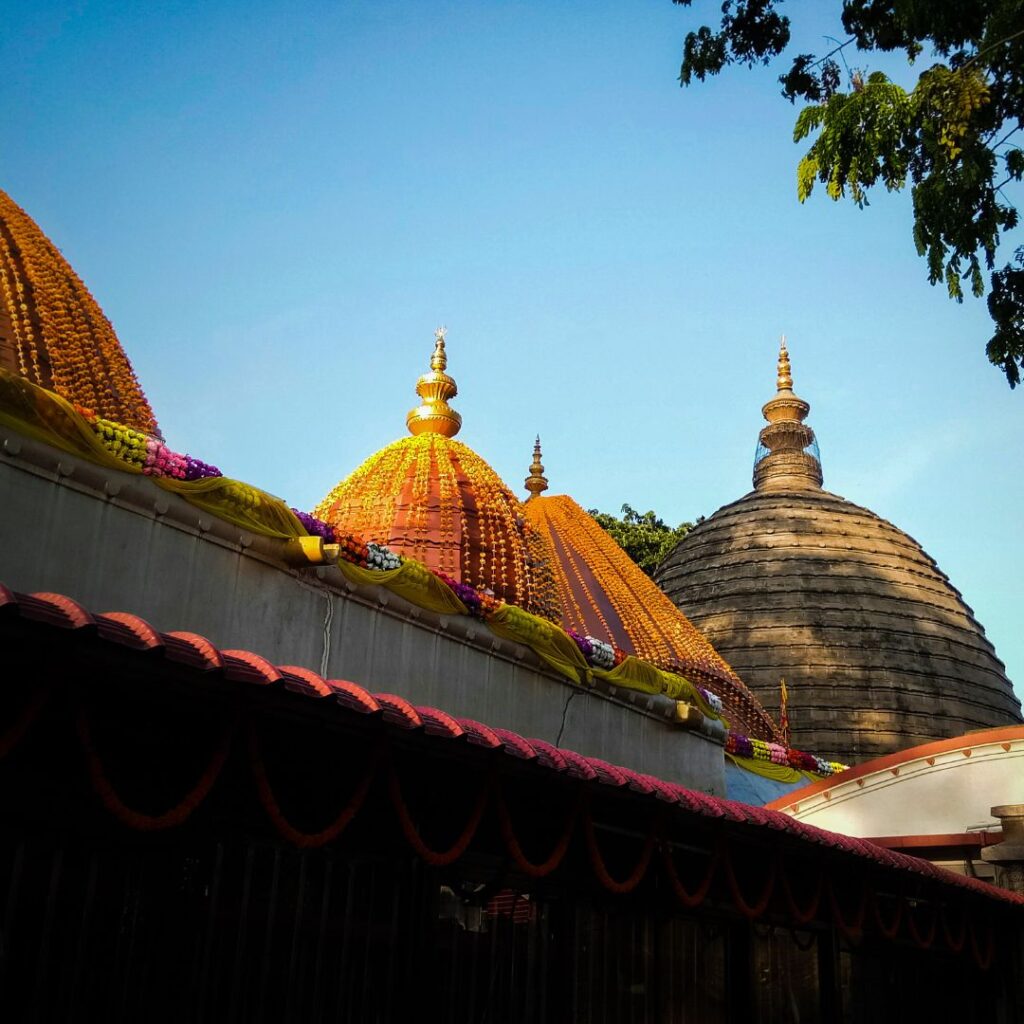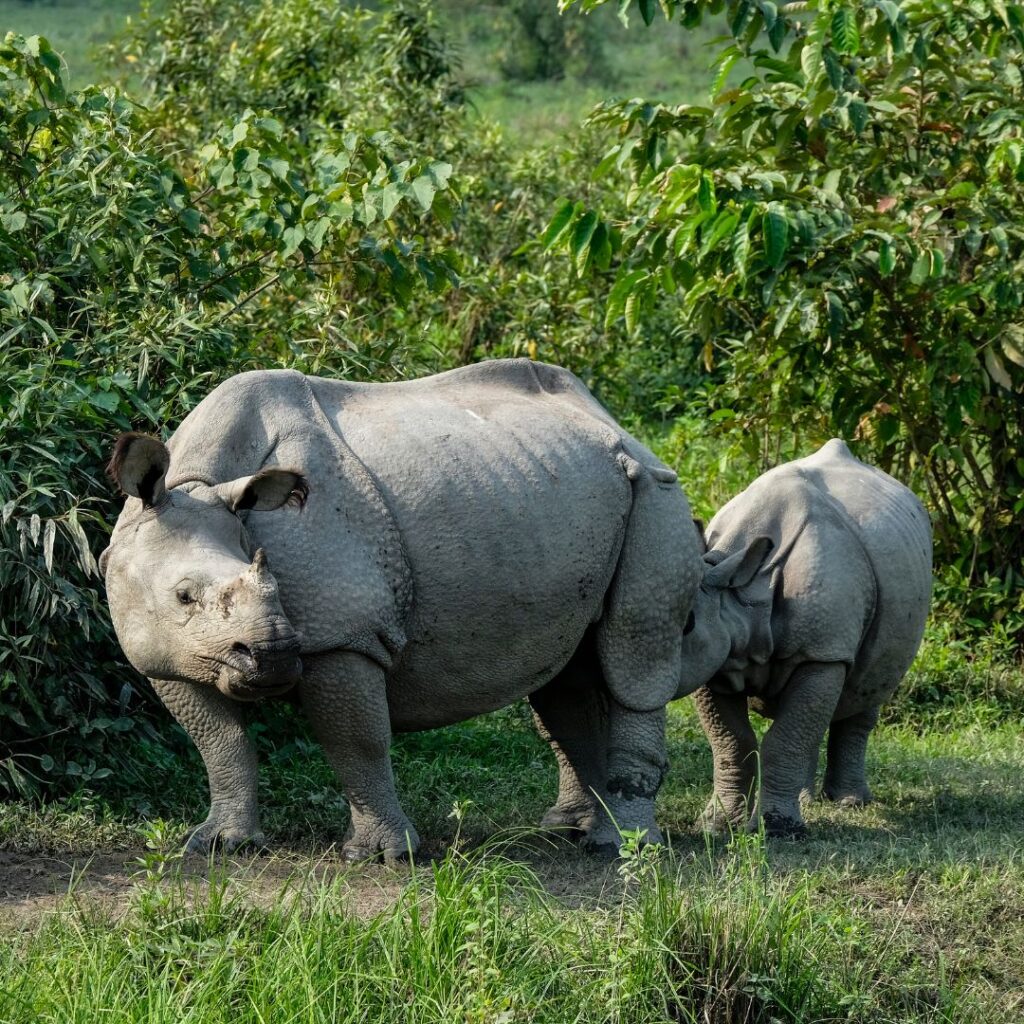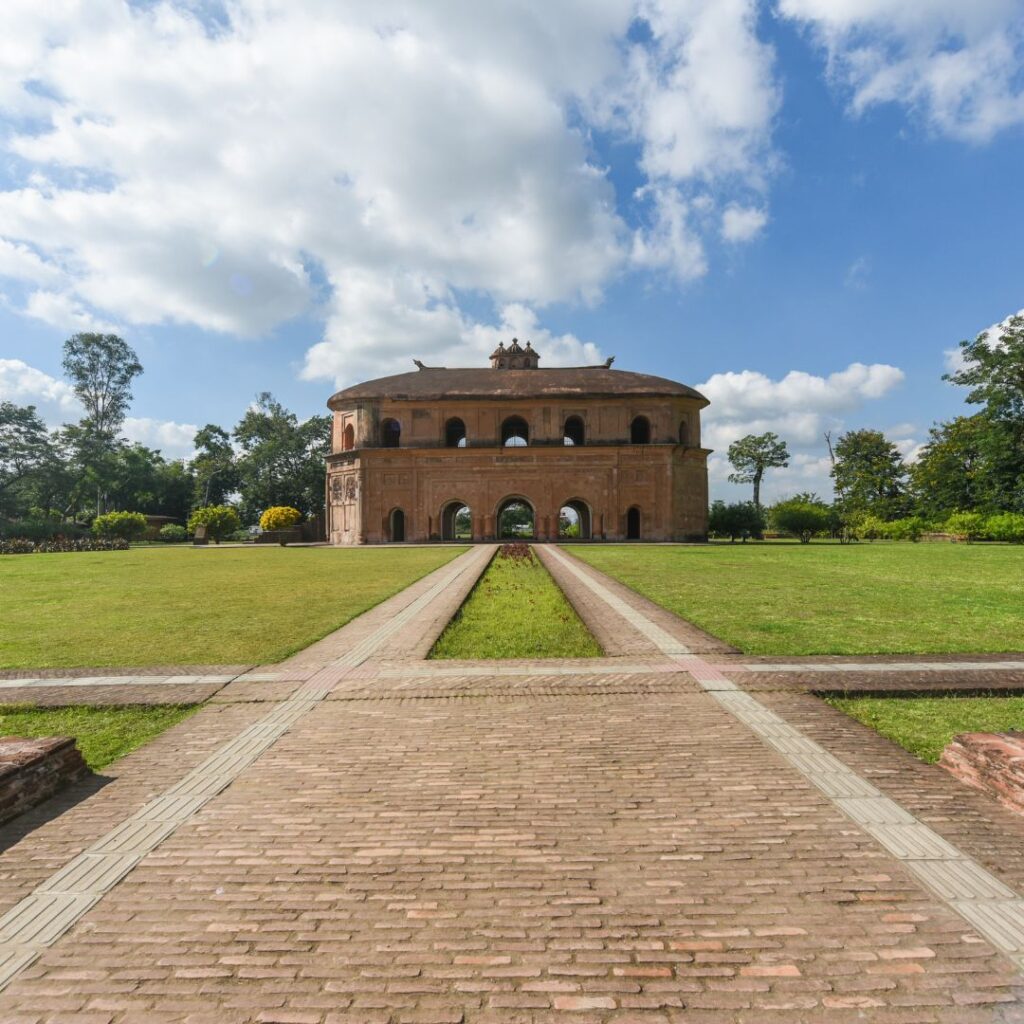Kaziranga National Park
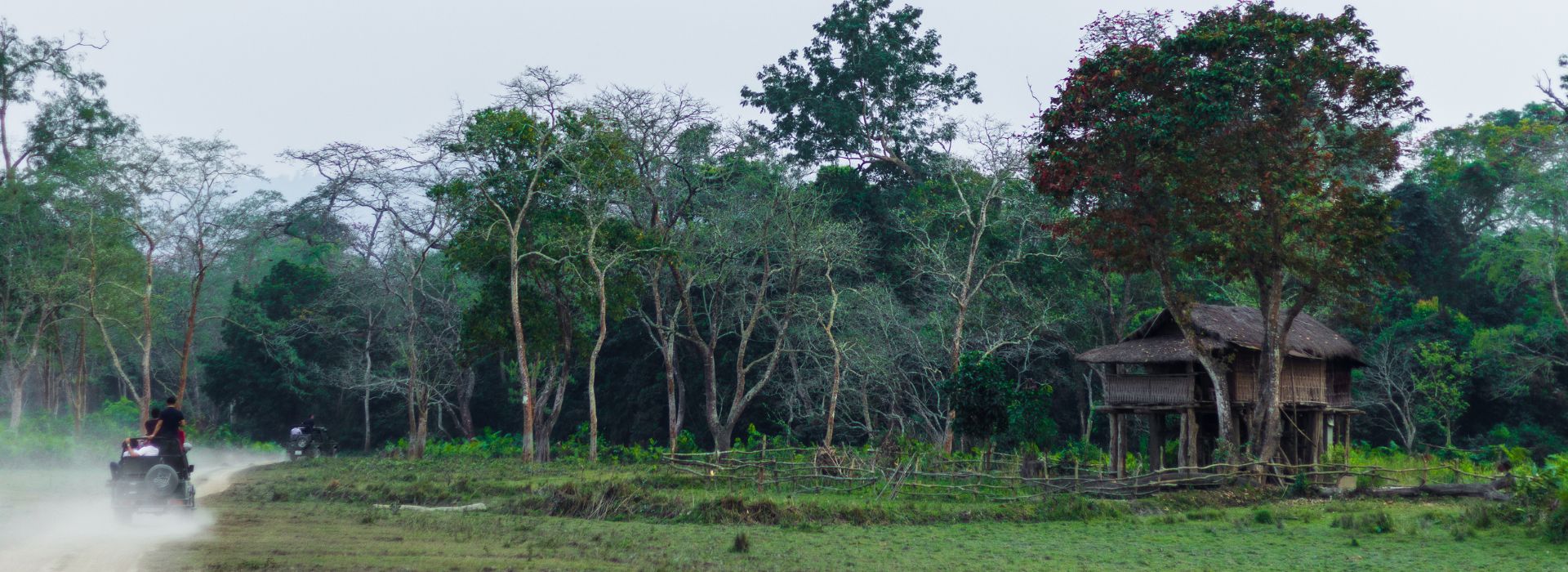
- Golaghat
- 12:00 am
- 12:00 am
Description
Best time to visit
Visitor Tips
Things to do
Description
Kaziranga National Park, a UNESCO World Heritage Site in Assam, has a rich history dating back to 1904. Its story begins with Mary Curzon, Baroness Curzon of Kedleston, who upon visiting the area and failing to see a single-horned rhinoceros, convinced her husband, the Viceroy of India, to initiate measures for the protection of this dwindling species. The park was established as a proposed reserve forest in 1905 and has undergone several name changes and expansions over the years, including becoming a tiger reserve in 2006.
Best time to visit
The ideal time to visit Kaziranga is from November to April, with the winter months offering mild and dry conditions, perfect for wildlife spotting and outdoor activities. Mid-February to mid-March is particularly recommended, coinciding with pleasant weather and the Kaziranga Elephant Festival in February.
Visitor Tips
Things to do

